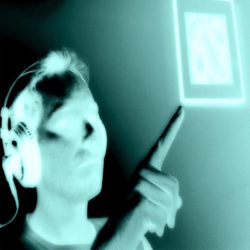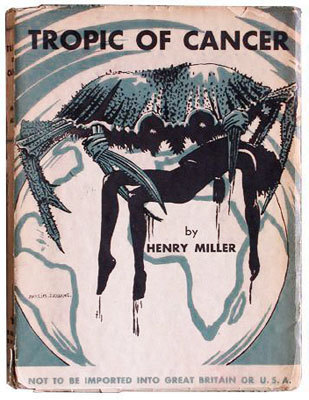[A snippet from a writing project in gestation, which will probably make very little sense if you haven’t read these other snippets: Square one, No importa, New tables, & Belly of the beast.]
It’s a quiet, comfortable evening here on the pueblo. There’s a heavenly breeze blowing through the window and Molly and I have settled into our pre-bedtime “routine.” I had to use quotation marks because our routines change frequently with the ever-changing circumstances. We don’t have electricity in the room per se, just an extension cord coming from their living room. There’s a light bulb hanging from a nail on the wall across from our bed. It provides enough light for basic circumnavigation, but not enough to read by, so for the past few nights, after we take showers and brush our teeth and whatnot, we wind down by playing on the computers and/or listening to the iPods. Last night a neighbor lent us a DVD, in English, of Bring it on Again, a B-movie sequel to the dopey cheerleader flick Bring it on. Back home, I wouldn’t watch either one of these films under any imaginable circumstances, but I have to admit, last night I couldn’t have enjoyed the movie more had it been directed by Francis Ford Coppola. Bring on that English! How sweet it was to relax my comprehension muscles and simply let familiar words funnel into my ears.
The bed is a multipurpose piece of furniture, serving as a place to sleep as well as acting as the sofa and general “thing to throw shit on.” I pulled it about a foot away from the wall, as I’m still a little jumpy about creepy crawlies. I had another run-in with a big, furry spider, this time in the front pocket of my backpack. My reactions to such things border on the ridiculous, but I simply can’t keep them in check. Something buzzes or crawls by me and I jump up, dance around a little, then grab a flip-flop from my foot and assume the pummeling position. In many respects this is becoming my default response to life’s daily challenges.
Tomorrow, Molly will “present” herself to the local government officials and begin some legwork on her research project. The meeting is subject to the rules of “Mexican time,” which means there’s a good chance it won’t happen at all. Such things used to trouble me more, before we got our refrigerator. This morning we had cold milk with our Raisin Bran. If I can count on leche fria, I just might make it through this.
The widespread poverty presents us with daily ethical dilemmas. We have a limited supply of money for food and basic necessities—grant money from the research foundation. Our own meager savings is paying for storage back in the U.S. We simply can’t afford to support our host family. That was never part of the deal. We can’t do it, or we’ll run out of money, forcing us to return to the U.S. before Molly can complete her data collection, which is slated to take nine months. So we had to stop having dinner with them every night, because night after night we ended up paying for all the food (despite clear, repeated agreements to split the cost). Although I’m no longer going to bed hungry, the new arrangement has created an awkward dynamic. The fact is, some nights they don’t eat. Tonight, it turns out we had enough to offer them some leftovers, but this hasn’t always been and won’t always be the case. I hate to think of the kids eating cheese doodles for dinner, but we can’t feed them every day. We just can’t do it.
Molly says she will “work it out” – her standard reply to my incessant whining and worrying. I know she’s keeping them financially afloat somehow, under my radar, but at this point I’m just going to have to accept my powerlessness in this strange universe. Some things refuse to be pummeled into submission.
*
It’s early Saturday morning and I’m enjoying two of my favorite pastimes: reading Henry Miller and swatting insects. Molly bought me the fly swatter in town, after she met with the government officials about doing her research. I can feel the sense of powerlessness giving way to strength of will. I am now an active participant in my environment. Things buzz and creep and swoop and I, in response to each and all, swat. I’m ruthless, too, stalking my adversaries with the patience and alacrity of a Venus flytrap. “Alacrity” – such a word only comes to me when I’m reading Miller. It’s hard to believe it’s been over ten years since I first stumbled across Tropic of Capricorn in the laundry room of my apartment complex in San Francisco, an event that more than any other ushered me into the world of art and creativity.
The dryer cycle had only a few minutes to go and my jeans were still a little bit damp, so I popped in another quarter to buy some time. I rummaged through a pile of old paperbacks setting on the table beside the washer. Miller’s name jumped out at me because my brother was always raving about him. Other than what I was forced to swallow in high school (I literally would rather have eaten the pages of Beowulf than read them), I had read almost nothing in the way of literature. But as I flipped to a random passage in Capricorn, I found myself becoming intrigued by Miller’s unconventional use of language. It was all over the place, flung onto to page stream-of-consciousness style, with seemingly little concern for standard fare like plot or character development. I was fascinated. It was intoxicating, really, and despite feeling slightly disoriented by the style, there was an unmistakable sense of life flowing through his words. This was living, breathing, pulsating prose that inspired, made me feel more awake, more connected to the world both around and inside me. My jeans were burnt around the edges before I roused myself from my trance, enthralled by this strange and tantalizing experience. I couldn’t put the book down for days.
In retrospect, I can see now that I was on the threshold of the about-to-be-known, like when, at the age of twelve or so, I would stay up late to watch dirty movies on HBO. At that point, I didn’t quite “get” the world of sex, but I knew I was onto to something big, something compelling and all-consuming. There was that palpable yet inscrutable sense of “No turning back.” And so it was with Miller’s world of creative self-expression.
It’s amazing how quickly I transformed from a person possessing not a spark of creativity to one who would come to place an almost supreme value on the creative process. Seemingly overnight I began reading voraciously, writing on an almost daily basis. I grew my hair long, bought a 1971 VW Bus, learned to play guitar and started writing songs. Family and old friends seemed at turns amused and baffled by the sudden change of persona. Mysteriously yet unmistakably, those first few flourishes of Miller’s Capricorn set me on a course I had hitherto neither considered nor even imagined.
Eventually I broke through to a whole new perspective on life, or perhaps it was rather I who was broken down, made more receptive in some way. I only know this: I was moved. Movement! Life! Somehow that’s it, the heart of the matter, although I can’t explain it anymore than I could tell my high school teacher what Beowulf was about. Of course, had I been assigned Miller in high school I probably would have disregarded him along with the rest. They say that when the student is ready, the teacher appears. I was ready for Miller at twenty-six and not before. Now, a decade later, just as I was beginning to fear that there might not be any more big surprises, any more soul-shaking discoveries, a man named Jesús hands me a roll of toilet paper and a new course is set.
No turning back.




